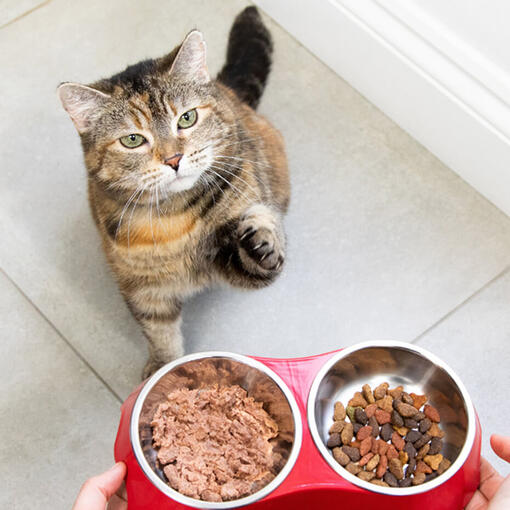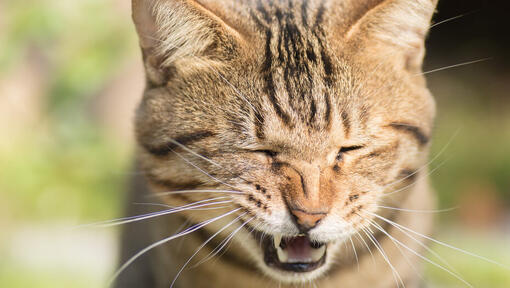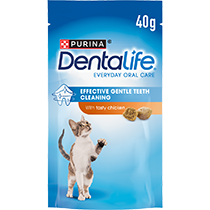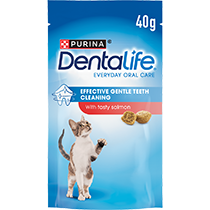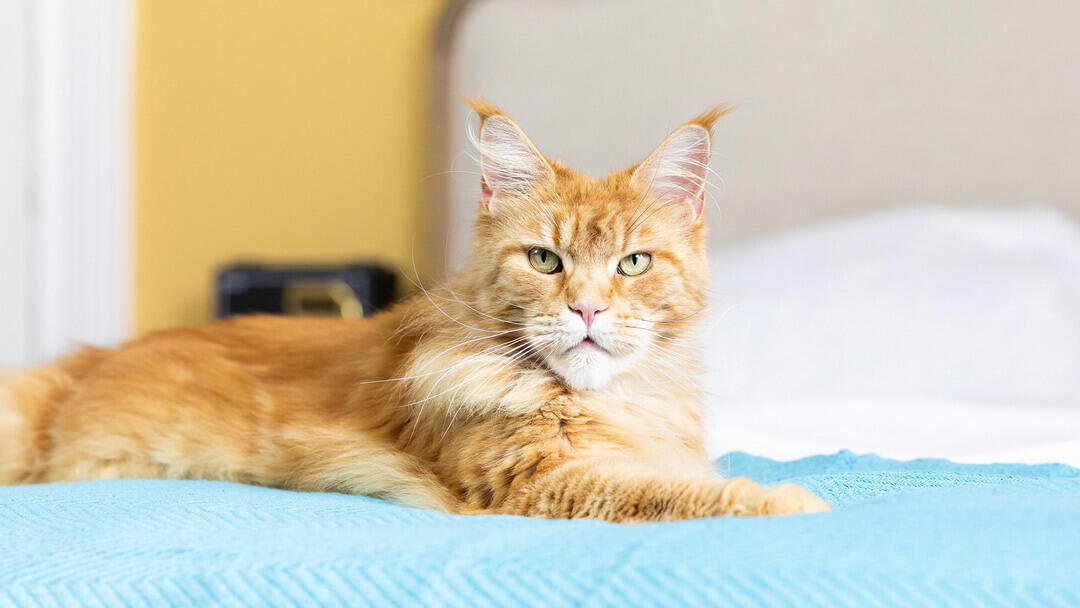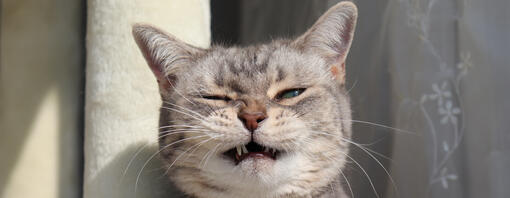
While the occasional sneeze from your cat is completely normal and is no cause for concern, frequent sneezing in cats might catch your attention.
For humans, sneezing is a normal response to irritation in the nasal passages - the body’s way of removing an irritant from the nose. If your cat’s sneezing won’t go away, or if other symptoms such as a runny nose, eyes or coughing occur along with the sneezing or if discharge or blood appears when sneezing, it`s time for a visit to your vet.
Cat sneezing explained
Sneezing, as in humans, is an explosive expulsion of air from the mouth and nose. Sometimes a shower of discharge is also sprayed out. This can be clear, or it may be bloodstained or even yellow or green if an infection is present.
Sneezing in cats is usually a minor occurrence – it should expel the irritant in their nose. However, sometimes repeated sneezing may be accompanied by other symptoms which could mean a bigger health issue.
Excessive discharge from the nose or eyes, coughing or wheezing, reduced appetite and fatigue all may be seen in a sneezing cat.
Why is my cat sneezing?
The most common cause of persistent sneezing in cats is an upper respiratory tract infection, most often due to viruses such as feline herpesvirus and feline calicivirus. Both these viruses are contagious between cats but cannot be caught by humans. Stress can often lower the immune system and worsen the signs of infection or increase transmission between cats.
As with colds and flu in people, treatment is aimed at controlling the symptoms while your cat fights the infection. Viral infections can sometimes lead to secondary bacterial infections which can be treated with antibiotics. Fungal infections of the nose also occur in cats but these are rarer. However, remember, the diagnosis and treatment of any issue with your cat must be prescribed and supervised by your trusted veterinarian.
Unlike in humans, allergies are not a common cause of sneezing in cats – but if your cat inhales something irritating, they may sneeze. Potential irritants include tobacco smoke, dusty cat litter, perfume, cleaning sprays, plug in air fresheners, mould, dust, pollen and even scented candles.
Watch out for the timing of any sneezing bouts to see if you can work out the cause – is your cat sneezing as you are cleaning the house or just after you have changed the cat litter, for instance?
Other causes of persistent sneezing in cats can include tooth root infections which are draining into the cat’s sinuses, inhaled foreign bodies such as blades of grass or even polyps and tumours in the nasal passages.
Why does my indoor cat keep sneezing?
As with any cat, an indoor one sneezing a lot can be due to an irritant in the environment or else a sign of an upper respiratory infection, more commonly known as a cold or cat flu. Although these infections are more likely to be contracted by going outside and meeting other cats, it is possible for you, or other humans, to carry viral particles into the house on your clothes, shoes or belongings.
If you notice your cat sneezing often, make sure to contact your vet as soon as possible so that they can discuss appropriate treatments. Other causes of sneezing are less common, but if your vet suspects it is not an infection, they can discuss these with you. If you have contact with cats from feline colonies, cat shelters, or any cat with unknown immunity or respiratory signs, it is advisable to thoroughly wash your hands and change your clothes before returning home to your own cats.
Why does my kitten keep sneezing?
If your kitten only sneezes occasionally, this should not be a cause for concern. However, if the sneezing persists, it is important visit your vet to find out the reason behind it. More often than not, the cause can be odd smells, like cleaning products or the cooking of spicy or pungent food. Dust, pollen, perfume, or cigarette smoke can also be triggers for sneezing. In some cases, it can also be the result of an infection, especially if your kitten has other symptoms. If your kitten does have an infection, you should see your vet sooner rather than later, as they can become very unwell more rapidly than adult cats.
Why is my elderly cat sneezing?
It’s normal for our feline friends to sneeze once in a while, elderly cats included. As long as the sneezes are not accompanied by other symptoms and they don’t happen very often, then you have nothing to worry about. However, it is worth remembering that elderly cats, like humans, are more susceptible to picking up any type of infection. Furthermore, they also have a higher prevalence of tumours when they are old. They are therefore more likely to need veterinary attention to help them.
What to do if your cat keeps sneezing
Make sure your cat receives regular vaccinations against feline herpesvirus and feline calicivirus to help prevent these viral infections.
If your cat only occasionally sneezes and is perfectly well in general, then just keep an eye on them for a few days and try to work out if there is any pattern to when they sneeze.
If your cats sneezing becomes more persistent, if your cat sneezes blood, or if they have other symptoms such as nasal discharge, runny eyes, fatigue, lethargy coughing or trouble breathing, or if they are off their food, then you should make an appointment to see your vet as soon as possible. Most causes of your cat’s sneezes are easily treated and your cat should soon be feeling much better.
Do cat colds go away on their own?
In many cases, mild colds in cats can resolve on their own with rest and proper care. Just like humans, cats’ immune systems can fight off common viruses over time. However, if the symptoms persist for more than a few days or worsen, it's important to consult a vet. Severe symptoms like lethargy, difficulty breathing, or a significant loss of appetite should never be ignored, as they could indicate a more serious condition that requires medical intervention. Always monitor your cat closely and seek veterinary care if you have concerns.
Looking for more cat health advice? Read our guide on cat vomiting, next.


